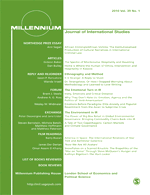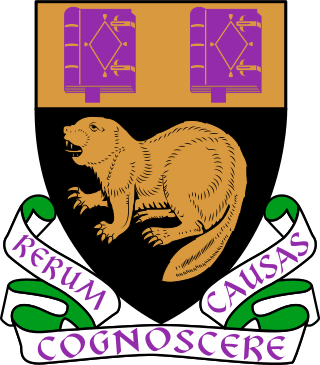
The London School of Economics and Political Science (LSE) is a public research university in London, England, and a member institution of the University of London. The school specialises exclusively in the social sciences, including economics, politics, sociology, law and anthropology. Founded in 1895 by Fabian Society members Sidney Webb, Beatrice Webb, Graham Wallas and George Bernard Shaw, LSE joined the University of London in 1900 and established its first degree courses under the auspices of the university in 1901. LSE began awarding its degrees in its own name in 2008, prior to which it awarded degrees of the University of London. It became a university in its own right within the University of London in 2022.

Eileen Vartan Barker is a professor in sociology, an emeritus member of the London School of Economics (LSE), and a consultant to that institution's Centre for the Study of Human Rights. She is the chairperson and founder of the Information Network Focus on Religious Movements (INFORM) and has written studies about cults and new religious movements.
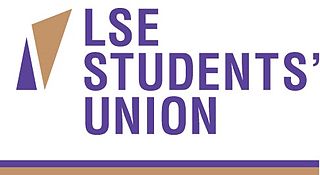
The London School of Economics Students' Union is the representative and campaigning body for students at the London School of Economics (LSE). Like other students' unions, it also funds and facilitates student activities of campus, including societies, sports clubs through the Athletics Union (AU), the Media Group, and Raising and Giving (RAG) charitable fundraising initiatives.
Simon Frederick Peter Halliday was an Irish writer and academic specialising in international relations and the Middle East, with particular reference to the Cold War, Iran, and the Arabian peninsula.
Robert William Dewar Boyce is a professional historian and was a senior lecturer in International History at the London School of Economics and Political Science (LSE). His main fields of interest are French external relations in the twentieth century, the role of economics, business and banking in modern international relations, Canadian external relations since 1900, and the modern history of international communications.
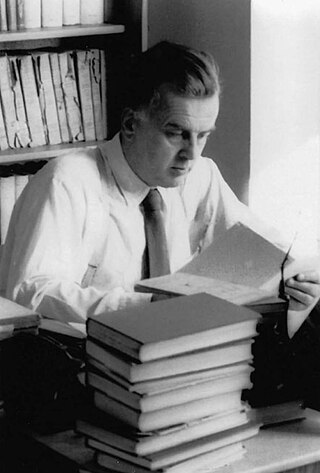
Robert James Martin Wight was one of the foremost British scholars of international relations in the twentieth century. He was the author of Power Politics, as well as the seminal essay "Why Is There No International Theory?". He was a teacher of some renown at both the London School of Economics and the University of Sussex, where he served as the founding Dean of European Studies.
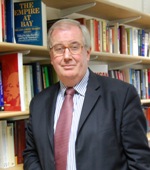
Michael E. Cox is a British academic and international relations scholar. He is currently Emeritus Professor of International Relations at the London School of Economics (LSE) and Director of LSE IDEAS. He also teaches for the TRIUM Global Executive MBA Program, an alliance of NYU Stern and the London School of Economics and HEC School of Management.

Patrick John Dunleavy, is Emeritus Professor of Political Science and Public Policy within the Government Department of the London School of Economics (LSE). He was also Co-Director of Democratic Audit and Chair of the LSE Public Policy Group. In addition Dunleavy is an ANZSOG Institute for Governance Centenary Chair at the University of Canberra, Australia.
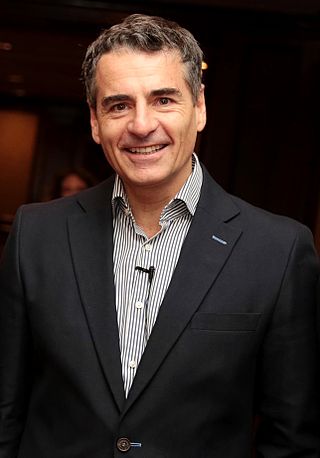
Andrés Velasco Brañes is a Chilean economist and professor who served as Minister of Finance in the first government of President Michelle Bachelet from March 2006 to March 2010. He is currently the Dean of the School of Public Policy at the London School of Economics.
Olajide Aluko was a Nigerian scholar who in October 1977 became the first professor of international relations in Sub-Saharan Africa. He was also said to be the Doyen of International Relations. He was a prolific writer and conference speaker who wrote and editted several books and journals concerning international relations.
Rukmini Bhaya Nair is a linguist, poet, writer and critic of India. She won the First Prize for her poem kali in the "All India Poetry Competition" in 1990 organised by The Poetry Society (India) in collaboration with British Council. She is currently a professor at Humanities and Social Sciences department of the Indian Institute of Technology Delhi. Nair is known for being a trenchant critic of the Hindutva ideology and the religious and caste discrimination that it promotes.

The Association for the Study of Ethnicity and Nationalism (ASEN) is an international, interdisciplinary association for academics, researchers, students, journalists and others directly concerned with advancing the study of ethnicity and nationalism. It was founded by research students and academics in 1990 at the London School of Economics, where the headquarters of the Association are based. The objectives of the Association are to establish an international and interdisciplinary network of scholars interested in ethnicity and nationalism; stimulate debate on ethnicity and nationalism through the organisation of seminars, workshops, lectures and conferences; disseminate information on scholarly activities concerning ethnicity and nationalism; and publish research on ethnicity and nationalism in its journals Nations and Nationalism and Studies in Ethnicity and Nationalism.
Ragnhild Marie Hatton was professor of International History at the London School of Economics. As the author of her obituary declared, she was "for a generation Britain's leading historian of 17th- and 18th century Europe...."

Frederick Samuel Northedge was a British Professor of International Relations at the London School of Economics.
Maitreesh Ghatak is an Indian economist who is the professor of economics at the London School of Economics. He is an applied microeconomic theorist with research interests in economic development, public economics, and the economics of organisations.
Naila Kabeer is an Indian-born British Bangladeshi social economist, research fellow, writer and professor at the London School of Economics. She was also president of the International Association for Feminist Economics (IAFFE) from 2018 to 2019. She is on the editorial committee of journals such as Feminist Economist, Development and Change, Gender and Development, Third World Quarterly and the Canadian Journal of Development Studies. She works primarily on poverty, gender and social policy issues. Her research interests include gender, poverty, social exclusion, labour markets and livelihoods, social protection, focused on South and South East Asia.
Dr. Judith Shapiro is a Senior Lecturer in Practice in the Department of Economics at the London School of Economics. The main body of her work lies in Russian Transitional and Post-Transitional Economics as well as the Economics of Health and Population. More recently, she has also researched and discussed the economics of gender.
Gilat Levy is an economist, researcher and council member. She has previously worked as a lecturer at Tel Aviv University at the Berglas School of Economics. Levy also held a role at Princeton as a Visiting Fellow prior to her arrival at the London School of Economics in 2008 as a full-time professor.
Carola Frege is a German scholar who specialises in international and comparative employment relations. Her research interests include industrial democracy, employee participation, trade unions, migration, and populism. Since 2008, she has been professor of comparative employment relations at the London School of Economics (LSE). She was previously assistant and associate professor of labor relations at Rutgers School of Management and Labor Relations (SMLR) (2001–2003), and lecturer and reader in industrial relations at the London School of Economics Department. Frege is currently a senior research fellow of the International Inequalities Institute at London School of Economics.
Felix Sebastian Berenskötter is a German political scientist who specializes in international relations theory, interpretivist approaches, concept analysis, European security, and transatlantic relations. He is a Senior Lecturer in International Relations and the former Head of Department of Politics and International Studies, SOAS University of London, and a member of the Governing Board of the European International Studies Association (EISA). Berenskötter serves on the editorial board of the Journal of Global Security Studies and co-edits Bristol Studies in International Theory.
